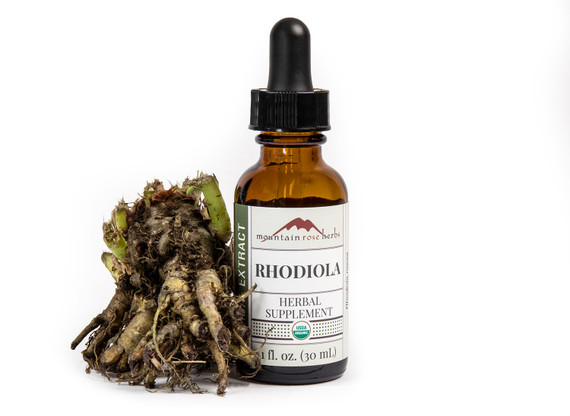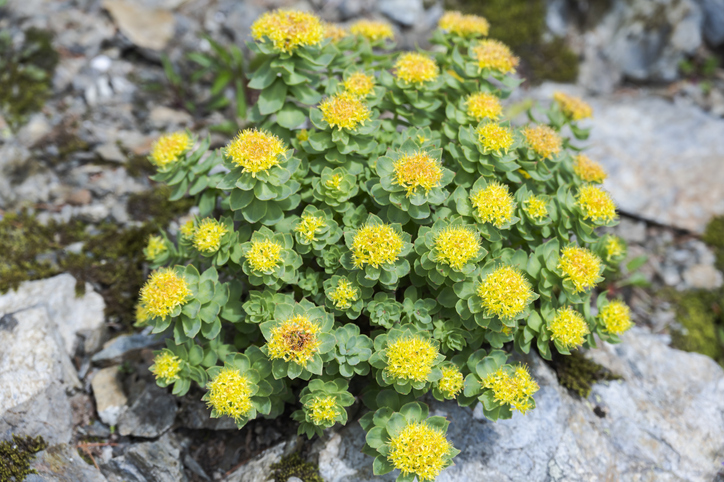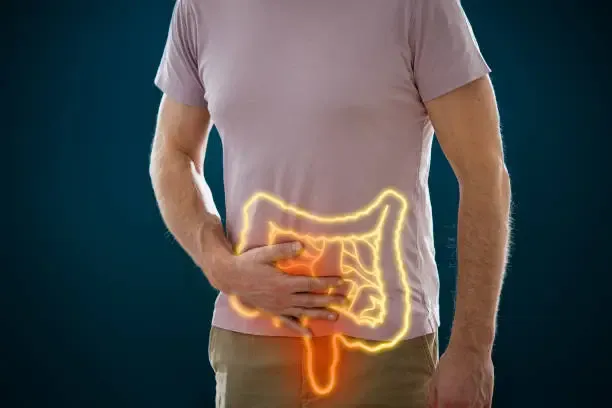
Rhodiola: What Does It Do?
Rhodiola rosea is an adaptogenic plant that can help with fatigue, high blood pressure, stress and calming of the nervous system. It is a perennial herb with lots of foliage and extracts for health benefits usually come from the roots. Rhodiola has been used for many years in traditional medicines in the Far East. Modern research techniques have more recently analysed what Rhodiola does from its extracts.
Traditional Rhodiola medicines are used to relieve exhaustion and stress. Because of this Rhodiola is categorized as an adaptogen and it has been used since the Middle Ages.
An adaptogen, as we have talked about in depth, is able to influence your daily functions to help you adapt to environmental stresses. A huge part of this adaptogenic process is regulating cortisol hormone secretion levels and potent adaptogens help to re-stabilise body cortisol levels. Rhodiola seems to balance the main hormones of the hypothalamus-pituitary-adrenal gland response axis, with levels of cortisol also included in this balancing effect.
Cortisol is an important stress hormone, being responsible for many health related outcomes. Some of these include increased fat deposits, general anxiety or feelings of anxiety and depression.
Extracts of Rhodiola rosea seem to help to influence neurotransmitter levels and central nervous activities.
We will now cover what this adaptogenic herb does to influence your health.

Basic Actions of Rhodiola
The main 3 active compounds within Rhodiola are Salidroside, Rosavins and Rhodiola specific flavonoids.
The flavonoids of Rhodiola show strong antioxidant activities, while a compound called rhodiosin exhibiting high antioxidant potential.
Antioxidants are crucial for survival and mitigate cell damage, in addition, they can support the activities of Vitamins C and E. It is possible that the antioxidant abilities of Rhodiola rosea could protect against certain cancers or inhibit their growth.
One study in animals showed that Rhodiola administration could increase muscle endurance.
Moreover, it is possible that the antioxidant abilities of Rhodiola rosea can help protect against certain cancers or inhibit their growth. Rhodiola seems to have direct anti-cancer cell activity. One day it might be used as a treatment for cancer, while salidroside may also assist with allergy management. This is because of it’s anti-inflammatory activities.

Rhodiola: The Brain
Research suggests that Rhodiola rosea, through antioxidant activity, could help to regulate the immune system.
Rhodiola extract might be able to help new neural stem cells to develop in certain brain areas. Not many compounds are able to do this. Rhodiola rosea could help maintain blood brain barrier integrity too.
It could be an effective treatment for depression, encouraging serotonin production, while supplementation has shown that it might help enhance brain function as tested through motor and cognitive tests.
200mg tablets of Rhodiola reduced anxiety, stress and depression after 14 days. Rhodiola has been used as an anti-depressant treatment for fatigue and insomnia for many years.
Through antioxidant action, Rhodiola could lessen the progression of diseases like dementia, while protecting the brain from damage.
Salidroside
Salidroside is a compound in Rhodiola extract and it seems to protect the brain from oxidative stress.
Beta-amyloids are important in dementia progression and salidroside could help diminish oxidative stress damage to the brain caused by Beta-amyloids.
Salidroside found in Rhodiola could increase levels of antioxidant enzymes. Thioredoxin that might protect nerve cells in the brain from stress-caused damage. Additionally, studies showed severe reductions in free radicals and other cell stress markers.

Blood Pressure and The Heart
Salidroside may protect the heart from cardiovascular disease. Reductions in serious inflammation chemicals, including cytokines, were seen when using Salidroside.
Key stages of cardiovascular disease are directly related to inflammation, including arthrosclerosis or injuries to blood vessels and Rhodiola rosea has been investigated as a treatment for cardiovascular disease prevention.
Through angiotensin regulation, salidroside may reduce heart blood pressure. High blood pressure, or angiotension, can acutely damage organs. This means that salidroside could provide protection to key organs from high blood pressure, including the kidneys.
One marker suggests salidroside activates key cell growth pathways, so one day salidroside may be seen as a recognised performance enhancer.
Studies are starting to show this, with Rhodiola supplementation improving muscle endurance and explosiveness in humans. This supports its status as a powerful adaptogen.
The studied participants experienced reduced pain and muscle damage, appearing to reduce fatigue. Specifically, Rhodiola extract might be able to help remake ATP, a key store of energy and this is why professional athletes use Rhodiola extract.
Rhodiola seems to prevent some types of heart cell death, specifically highlighting the possibility that Rhodiola protects the heart and its cells from premature cell death.
It is the supercharged antioxidant abilities of Rhodiola that is thought to be responsible for this, while recently there has been a cascade of evidence in support of this notion.

Gut Activity
Certain Rhodiola extracts display anti-microbial activities preventing growth of certain harmful bacteria and fungi.
Rhodiola might be able to assist with balancing gut bacteria and reduce infections in the gut.
Salidroside has been identified, again, as a compound that may regulate levels of gut bacteria and your gut bacteria can significantly influence your health. Gut bacteria can play roles in both brain health and weight gain.
Gut bacteria influence the absorption and digestion of nutrients, encouraging good health, while gut bacteria also play a role in blood pressure regulation.
We have covered digestive enzymes in quite some detail here and recommended some top products.
Rhodiola seems to support digestive enzyme activity in the intestines, encouraging healthy digestion. Rhodiola might help reduce inflammation in the gut and aid healthy digestion.
Conclusion
Rhodiola seems to have many documented benefits to one’s health and it is also not a surprise that this herb has a long history in medicine.
With modern molecular profiling and research techniques, an astounding number of studies are being done on the usefulness of this adaptogen. Cellular mechanisms of influence are being found regularly and this is quite important to proving any health effects.
Although Rhodiola may fall into the alternative medicine category for now, there is a lot of developing evidence in support of it’s health benefits and effects on the body.
Rhodiola extract has antioxidant potential and this seems to be a foundation of where its potential health benefits derive from. It might have potential health benefits with helping fatigue, stress, nerve and heart cell protection.





